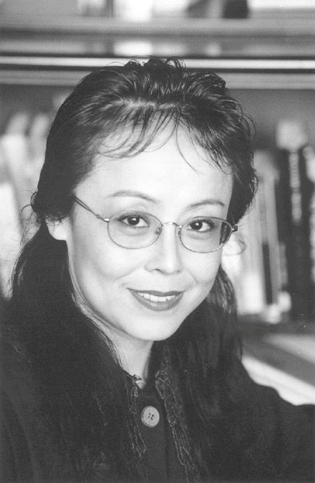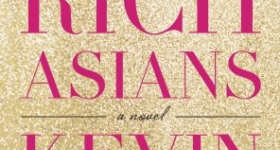From Amy Tan’s The Joy Luck Club to Amy Chua’s Battle Hymn of the Tiger Mother, the idea of a generational war between mothers and their daughters -- usually culminating in the revelation that they are really not so different after all -- has become a long-established (and, dare I say, stereotypical) narrative in Asian American literature. In her book Message from an Unknown Chinese Mother: Stories of Loss and Love, UK-based journalist Xinran offers a new perspective on mother-daughter relationships, a counternarrative perhaps to the types of stories we have grown accustomed to. While authors like Tan and Chua examine how these relationships can often become formative experiences, Xinran instead asks how the absence of such a relationship can turn into a crippling burden.
Message documents the growing trend in the past two decades of transnational adoption of Chinese girls through a humanistic lens. Intercutting poignant interviews with women who have been forced to give up their daughters, whether by law, circumstance, or beliefs about filial piety, with historical facts about the changing sociopolitical state of 20th century China, Xinran paints a complex picture of the ways in which government politics and changing cultural standards have real-world consequences for innocent women.
“Those poor women,” an orphanage worker laments, “carrying their babies in their bellies for nine months, giving them up is like having their own flesh sliced out. They can’t cuddle their own daughters, and they have no idea how the new parents are treating them. They spend their whole lives anxiously fearing for their daughters.”

Time and again, Xinran’s interviewees prove that “Chinese women are the most unselfish in the world. They’ll do anything for their husbands and children, suffer any pain, shed their own blood and tears to look after them.” Each woman, with her own unique story, offers another layer to the complicated role that women and their daughters, abandoned but never forgotten, play in a society that prefers sons. I argue that Message can be read, in a way, as an inherently feminist text in a culture without an established feminist tradition: the patriarchal forces that bring suffering to all of these women runs as an undercurrent throughout, reminding us that “Girls are born to suffer.”
While the stories Xinran has collected are compelling and often heartrending, I must say the organizational structure of the book confused me at times. Each chapter, save for a couple that cross-reference each other, is a self-contained story of a single woman. Consequently, the book arguably lacks a larger narrative arc. The non-chronological structure also creates glaring discrepancies—Xinran seems to forget major points in later chapters that she explains in the first few. At worst, this makes Message redundant, as she sometimes repeats facts and statistics she has already established. However, though mildly annoying, this ultimately does not detract from the heart of the book.
As the title states, Message is at its core a story of loss: the emptiness we must live with, the people we’ve left behind, the words we want to say but lack the voice to do so. Xinran provides that voice to all of the Chinese women whose lives have been irrevocably changed by unforgiving government policies and social conventions. She offers solace to the nameless women with holes in their hearts, and love to the daughters they can never forget:
Beloved Child
If the rain touches you, it is my tears
If the wind caresses you, it is my hand
The daylight is my watching eye over you
The nighttime is my cradling of your dreams.
(Note: Xinran is also the founder of the Mothers’ Bridge of Love, a charity that helps educate adoptive families about Chinese culture and helps to support disadvantaged children in China. To learn more about the MBL and how you can donate, please visit http://www.mothersbridge.org/.)
Eric Zhang has a background in Asian American studies, art, and visual culture. He currently lives in New York, where he works at NYU and MOCA.









Comments